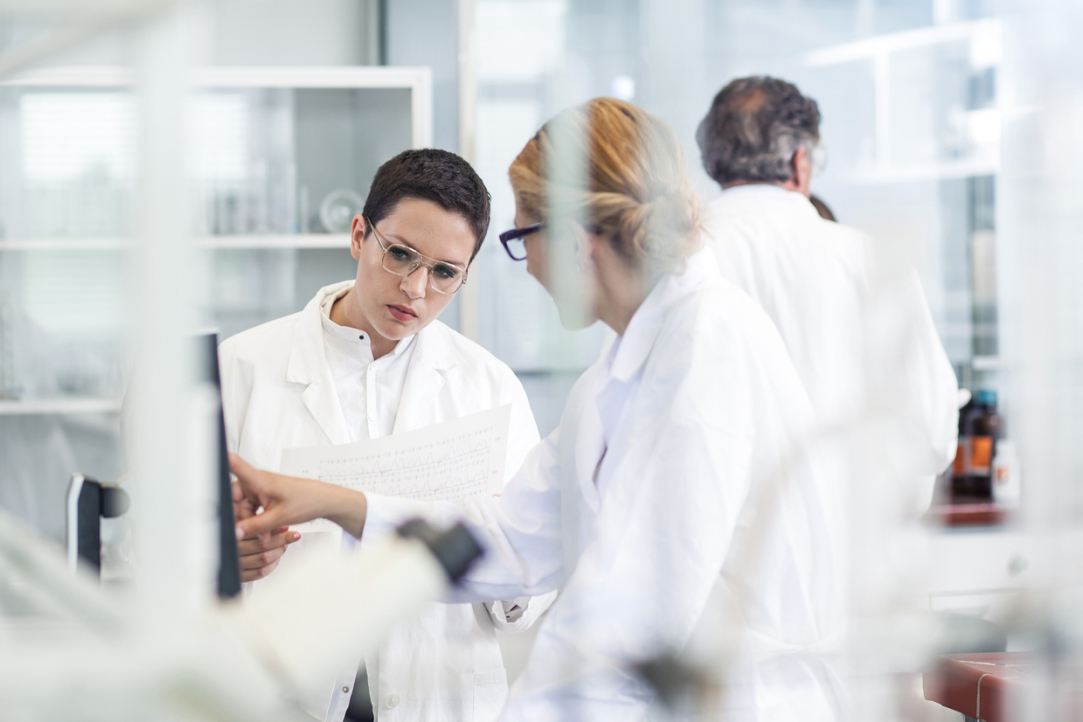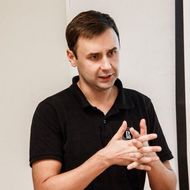HSE University Announces Results of Mirror Labs 2022 Competition

The Mirror Labs research project competition is aimed at HSE University departments that are planning to conduct joint studies with other Russian universities and research centres. The competition is now in its third year. A total of 19 academic organisations from 14 regions of Russia submitted applications as partners of HSE University, including 9 organisations participating for the first time.
The competition received 24 applications from 17 HSE University research departments:
12 applications from HSE University-Moscow
9 applications from HSE University-St Petersburg
2 applications from HSE University-Perm
1 application from HSE University-Nizhny Novgorod
The most active participants in the competition were research teams from:
Yaroslav-the-Wise Novgorod State University (NovSU)
Immanuel Kant Baltic Federal University
Southern Federal University (SFU)
One significant difference from previous years is that the 2022 competition is oriented around fields relevant to the HSE University Development Programme for the Period until 2030. Eight research projects were named the winners.
HSE University-St Petersburg had the strongest showing among the university’s campuses; out of the nine applications from HSE University-St Petersburg research departments submitted to the competition, five will receive support. A further two applications from HSE University-Moscow’s research departments will be supported, as well as one from HSE University-Perm.
The winning projects are:
1. The Creation and Study of A3B5 Semiconductor Heterostructures with Quantum Dots for Nanophotonics, Single-photon Emitters, and Micro- and Nanolasers. (HSE University-St Petersburg International Laboratory of Quantum Optoelectronics and the SFU Laboratory of Epitaxial Technologies.
2. Perceived Quality of Communication in Real and Computer-mediated Meetings and its Objective Measurement in the Case of Oxytocin and Facial Expression Markers. (HSE University-St Petersburg Laboratory for Social and Cognitive Informatics and Krasnoyarsk State Medical University).
3. Sociopsychological Factors of the Adaptation and Integration of Migrant Children (HSE University-St Petersburg Laboratory of Sociology in Education and Science and the Novosibirsk State Pedagogical University Laboratory of Sociopsychological Studies)
4. Supply and Demand of Youth Skills: Between Education and the Labour Market (HSE University-Moscow Laboratory for Labour Market Studies and the SFU Centre for Research in Instrumental, Mathematical, and Intellectual Tools in Economics).
5. Spatial Analysis as a Key Tool in Managing Regional Rural Development: Principles, Methods, and Practical Recommendations (HSE University-Moscow Institute for Agrarian Studies and the Stavropol State Agrarian University Laboratory for Monitoring the Sustainable Socioeconomic Development of Agricultural Territories).
6. Current Aspects of Human Rights Research in the Context of Bioethics (HSE University-Perm Laboratory of Interdisciplinary Empirical Studies and the University of Tyumen Centre for Innovative Design and Applied Studies)
7. Practices in Urban Development in the Russian Political Space in the Late-15th to Early-17th Centuries: The Person and the Small Town (HSE University-St Petersburg Centre for Historical Research and the NovSU Centre of Archaeological Studies).
8. The Development of Arctic Tourism and Creative Industries as Drivers of the Transformation of Arctic Cities and Territories Using the Example of the Murmansk Region (HSE University-St Petersburg Laboratory for Management in Culture and Tourism and the Murmansk Arctic State University Laboratory for Interdisciplinary Studies of the Quality of Life in Arctic Cities).

Marina Litvintseva
‘We are happy that the competition once again expanded the scope of cooperation of HSE University’s research groups. Among the winning submissions are four joint projects with regional organisations that have not taken part in the competition before. Now, HSE University will be implementing 30 research projects in partnership with 24 regional universities,’ noted Marina Litvintseva, Director for International Research at HSE University. ‘I would like to highlight the strong effort made by our university’s St Petersburg campus in the Mirror Labs project—they had the most submissions, which has already become the norm. And the members of the competition committee took notice: out of the nine projects submitted by the campus, five went on to become winners.’

Andrey Kozhanov
‘One of the useful functions of the Mirror Labs project is taking undergraduates, doctoral students, and early-career researchers who have developed in the local research teams of HSE University and other universities and research centres and engaging them in joint research work with like-minded colleagues,’ explained Andrey Kozhanov, Director of the HSE University Centre for Student Academic Development. ‘For many of them, this is an opportunity to encounter different academic cultures and other cognitive and technical norms in research. This is very useful for academic development, socialisation, and building a trajectory for one’s future research career. This includes the university’s existing programmes and tools, such as the Russian Postdoctoral Fellowship Programme.’
See also:
HSE and UTM Present Results of Mirror Laboratory's Work at Russian–Malaysian Commission
HSE University–St Petersburg and the Universiti Teknologi Malaysia (UTM) presented the results of two years of work and a development roadmap for the mirror laboratory on social entrepreneurship. The document outlines the strategy for global transformation in the business and digital innovation sphere.
'We View Mathematics as a Universal Language for Natural Sciences, Economics, and Computer Science'
The Laboratory for Geometric Algebra and Applications at the HSE Faculty of Economic Sciences is developing a universal language for mathematics, physics, and other exact and natural sciences. It is creating computational methods that are applied in geometry, physics, machine learning, engineering, computer science, and other fields. The laboratory’s staff, including doctoral students, have published numerous articles in leading scientific journals and have taken part in major international conferences. Dmitry Shirokov, Head of the Laboratory, spoke with the HSE News Service about their work.
HSE Researchers Introduce Novel Symmetry-Aware Neural Network Architecture
Researchers at the HSE Laboratory for Geometric Algebra and Applications have developed a new neural network architecture that can accelerate and streamline data analysis in physics, biology, and engineering. The scientists presented their solution on July 16 in Vancouver at ICML 2025, one of the world's leading conferences on machine learning. Both the paper and the source code are publicly available.
'Biotech Is Booming Worldwide'
For more than five years, the International Laboratory of Bioinformatics at the HSE Faculty of Computer Science has been advancing cutting-edge research. During this time, its scientists have achieved major breakthroughs, including the development of CARDIOLIFE—a unique genetic test unmatched worldwide that predicts the likelihood of cardiovascular disease. With the active participation of HSE students, including doctoral students, the team is also working on a new generation of medicines. In this interview with the HSE News Service, Laboratory Head Maria Poptsova shares insights into their work.
'Samarkand—St Petersburg': HSE University–St Petersburg and Samarkand State University to Design Digital Future of Cultural Heritage
Samarkand State University named after Sharof Rashidov hosted the international research and educational seminar 'Branding Cultural Heritage: Digital Tools and Design Practices.' The event gathered researchers and students from Russia and Uzbekistan—participants of a large-scale project of the mirror laboratory 'Integrated Platform Solutions for the Preservation and Promotion of Cultural Heritage (Cases of Samarkand and St Petersburg)'.
'Our Goal Is Not to Determine Which Version Is Correct but to Explore the Variability'
The International Linguistic Convergence Laboratory at the HSE Faculty of Humanities studies the processes of convergence among languages spoken in regions with mixed, multiethnic populations. Research conducted by linguists at HSE University contributes to understanding the history of language development and explores how languages are perceived and used in multilingual environments. George Moroz, head of the laboratory, shares more details in an interview with the HSE News Service.
AI to Enable Accurate Modelling of Data Storage System Performance
Researchers at the HSE Faculty of Computer Science have developed a new approach to modelling data storage systems based on generative machine learning models. This approach makes it possible to accurately predict the key performance characteristics of such systems under various conditions. Results have been published in the IEEE Access journal.
HSE University–St Petersburg Presents Project on Social Entrepreneurship at Session of Russian–Malaysian Working Group
Alexander Sorokin, Dean of the St Petersburg School of Social Sciences, presented the results of a joint Russian–Malaysian mirror laboratory project in social entrepreneurship at the second meeting of the Russian–Malaysian Working Group on Education, Science, and Technology at the Universiti Teknologi Malaysia (UTM).
'The Branch of Medicine That Our Developments Primarily Target Is Cardiology'
The application of mathematical models to the diagnosis and treatment of cardiovascular diseases contributes to the effective detection of patient predispositions and supports the selection of best treatment strategies. The use of mathematical models helps create new diagnostic tools and train neural networks to assist clinicians. Researchers from HSE University and colleagues from Saratov State Medical University are engaged in this work as part of the Mirror Laboratories project. In this interview, Natalya Stankevich, Senior Research Fellow at the International Laboratory of Dynamical Systems and Applications of the HSE Campus in Nizhny Novgorod, talks about what the collaboration has achieved so far.
Mirror Laboratory of HSE and UTM Shares Its First Achievements
In autumn of 2024, a delegation from Malaysia, led by Minister of Higher Education Zambry bin Abdul Kadir, visited the HSE campus in St Petersburg. One of the key topics of discussion was the initial results of the mirror laboratory, a joint initiative between HSE University-St Petersburg and the University of Technology Malaysia (UTM).


